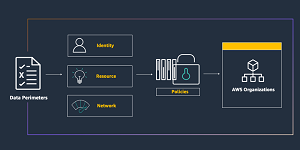- Home
- Training & Placement

Hardware Networking
- Hardware networking refers to the physical components that allow devices to communicate and interact on a computer network
- These components are the foundation of a network infrastructure and include
- Routers, Switches, Modems, Hubs, Bridges, Network servers, Workstations, Network interface cards, Repeaters, and Firewalls.

Network Engineers
- Network engineers are responsible for the design, implementation, maintenance, and operation of computer networks for businesses and organizations
- They work with various types of networks, including local area networks (LANs), wireless local area networks (WLANs), personal area networks (PENs), desk area networks (DANs), and voice over internet protocol (VOIP) networks

cloud security
- Cloud security measures can be categorized as provider-based, customer-based, or service-based. Provider-based security measures are implemented by cloud service providers to protect the physical data centers and network architecture.
- You can demonstrate your cloud security competency by taking the Certificate of Cloud Security Knowledge (CCSK), a web-based exam.

windows security
- Windows Security is a built-in app that helps protect your device from malware, viruses, and other security threats
- Windows Security is on by default when you first start up Windows 10. You can access Windows Security by tapping the Windows Start button, typing "windows security", selecting it from the results, and then selecting Device security.

LINUX ADMIN
- A Linux administrator, or Linux system administrator, manages the Linux operating system and the hardware and software that run on it
- They are responsible for the performance, security, and reliability of the system, and they work with other IT professionals to solve problems.

Cyber Security
- Cyber security is how individuals and organisations reduce the risk of cyber attack
- Cyber security's core function is to protect the devices we all use (smartphones, laptops, tablets and computers), and the services we access - both online and at work - from theft or damage.

aws network security
- Amazon Web Services (AWS) offers a variety of network security services to help protect your data, applications, and networks
- AWS cloud security is a shared responsibility between AWS and the customer. AWS is responsible for the security of the cloud itself, while the customer is responsible for securing their operations within the cloud.

aws devops
- DevOps is the combination of cultural philosophies, practices, and tools that increases an organization’s ability to deliver applications and services at high velocity
- evolving and improving products at a faster pace than organizations using traditional software development and infrastructure management processes.
- This speed enables organizations to better serve their customers and compete more effectively in the market.

Java Development Core Java
- Core Java, also known as Java Standard Edition (J2SE), is a subset of the Java programming language that's used to build general-purpose applications. It focuses on object-oriented programming (OOP) concepts, such as
- Inheritance
- Polymorphism
- Encapsulation
- Abstraction

Advance Java
- Advanced Java is a sub-category of the Java programming language that is used to develop enterprise-level applications.
- It is more technologically complex than core Java, and is used to create multi-tiered applications for web, mobile, and other online applications.

Artificial Intelligence
- Artificial intelligence (AI) is a field of science that focuses on building machines and computers that can learn, reason, and act in ways that would normally require human intelligence.
- AI systems use math and logic to simulate human reasoning, and learn from data to make decisions and predictions.

Python Development
- Python development is the process of using the Python programming language to create applications, websites, and other software solutions.
- Python is a general-purpose, high-level, object-oriented language that is popular with developers due to its versatility and user-friendly nature.

Machine Learning
- Machine learning is a type of artificial intelligence (AI) that allows computers to learn and improve without explicit programming
- Machine learning uses algorithms to process large amounts of data, identify patterns, and make predictions. It can perform tasks such as classification and prediction on documents, images, and numbers.

Web Development
- Web development is the process of creating websites or web applications, which involves:
- Design
- Coding
- Content creation
- Testing
- Maintenance

Digital Marketing
- Digital marketing is a broad category of marketing strategies and technologies that use digital channels to reach consumers online. It includes a variety of methods, such as
- Online marketing
- Mobile marketing
- Digital advertising
- Content syndication

testing tools
- Testing tools are software or hardware that test systems or applications. They can be used for different types of testing, such as unit testing and integration testing.
- Cost
- Compatibility
- Ease of use
- Technical support
















